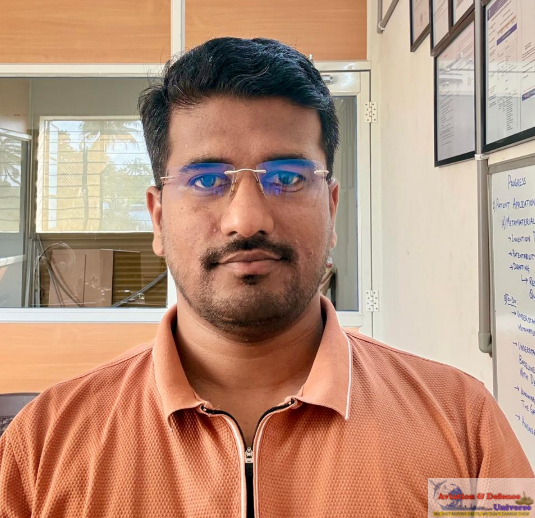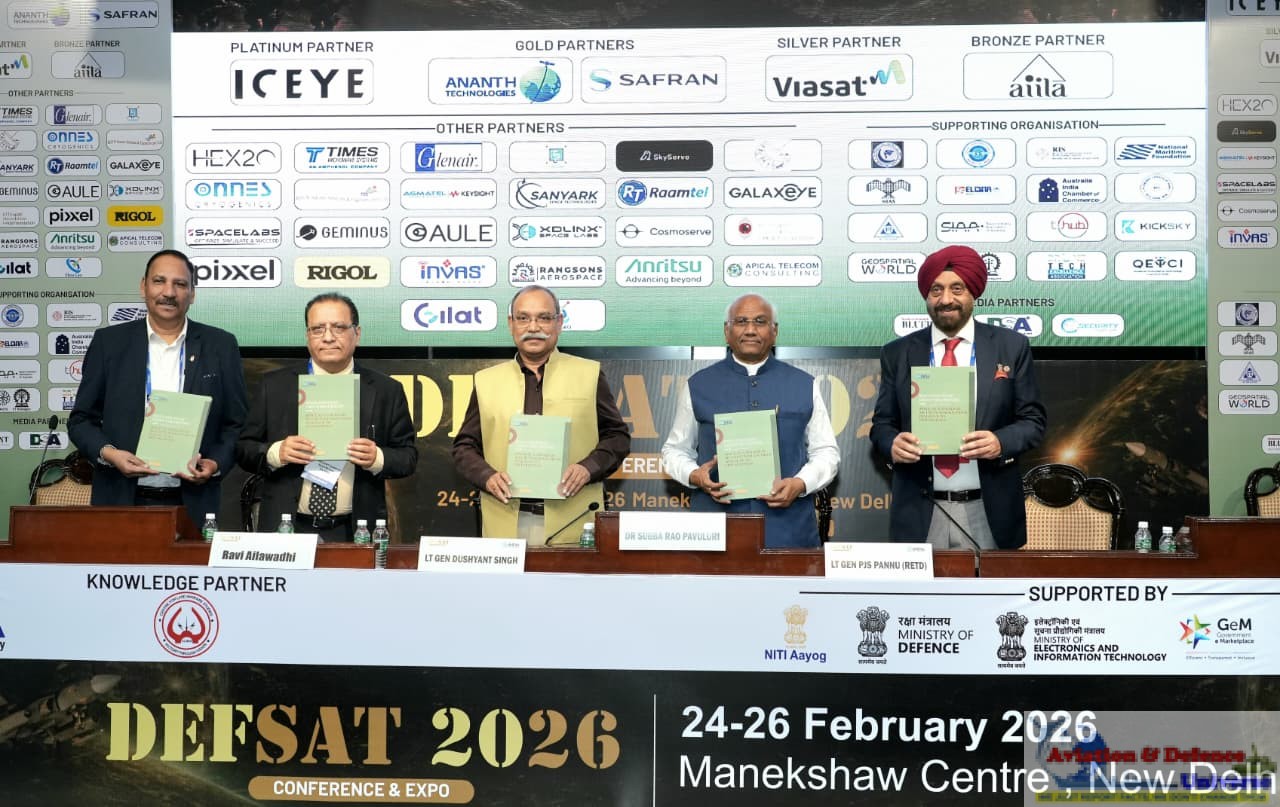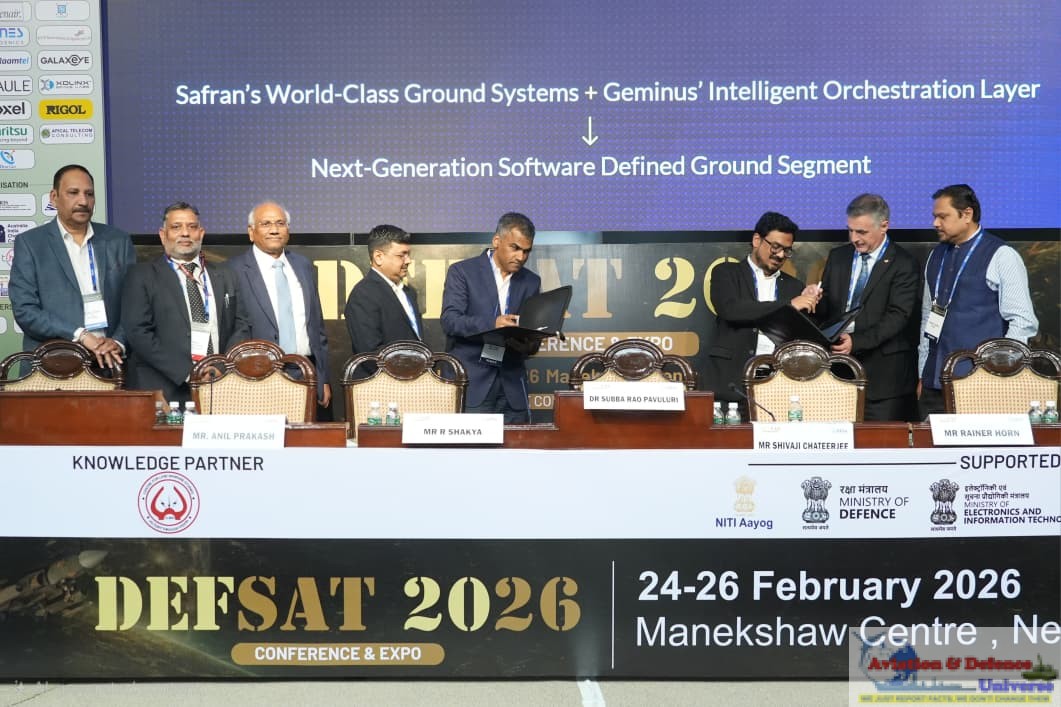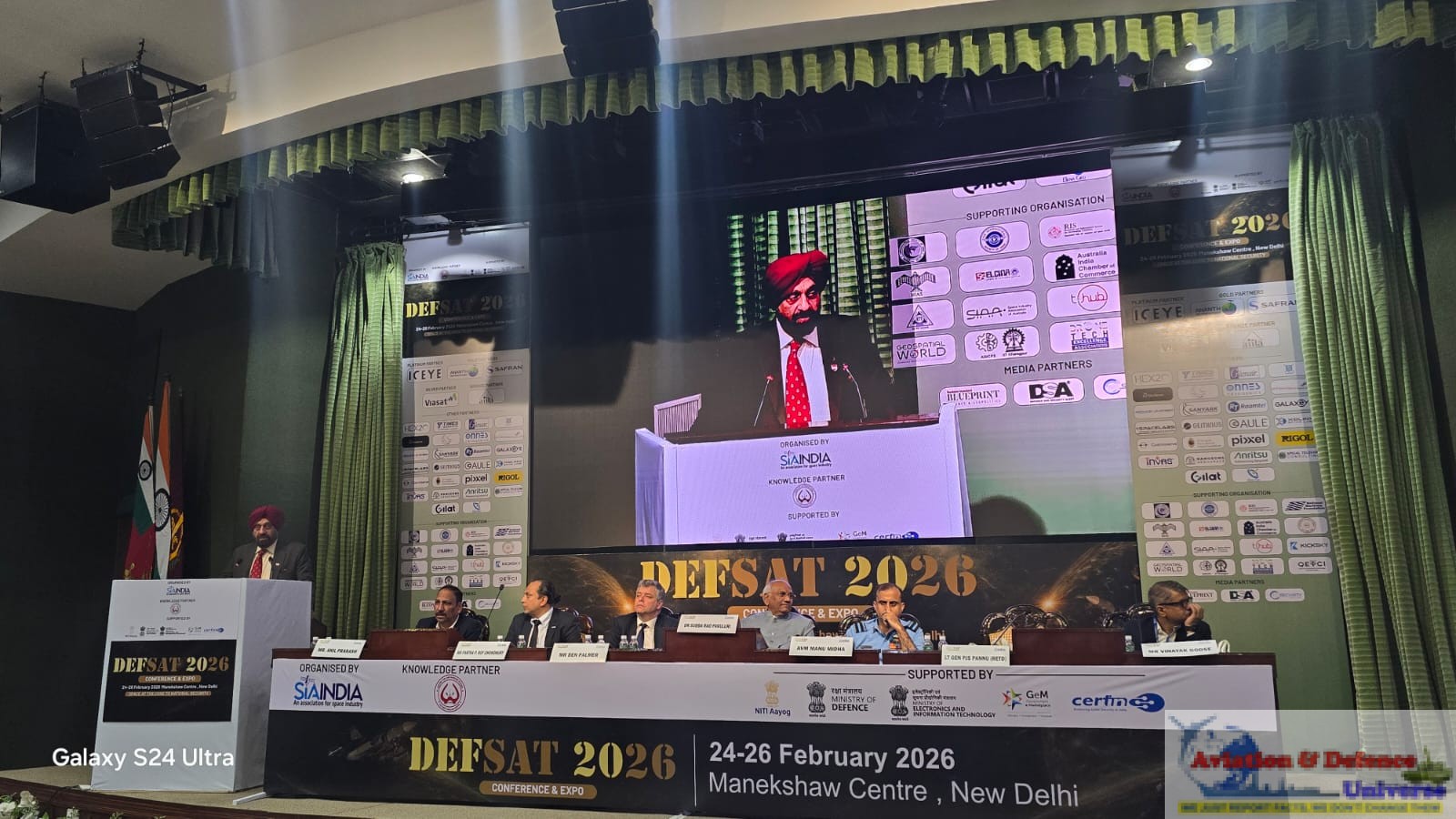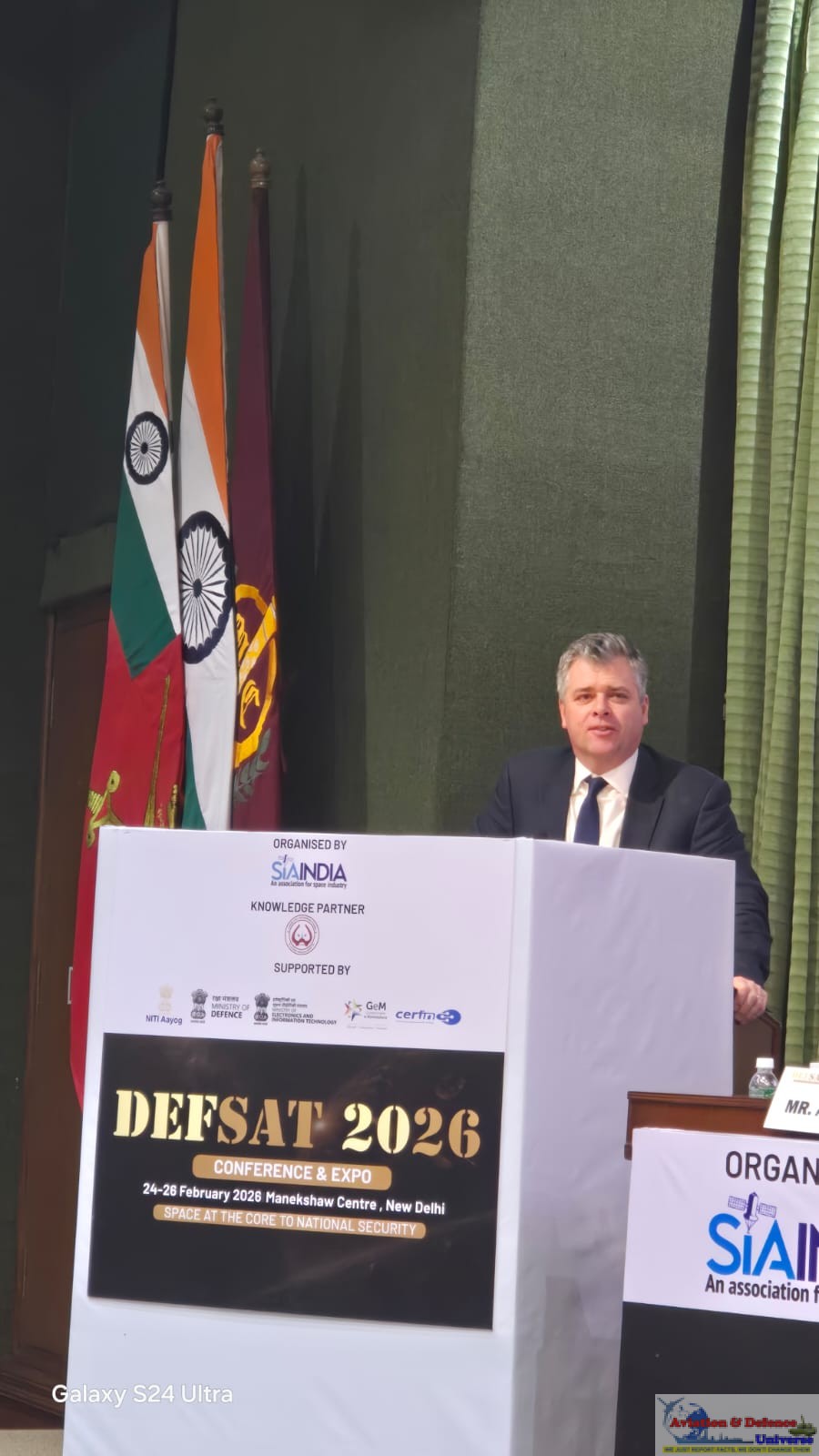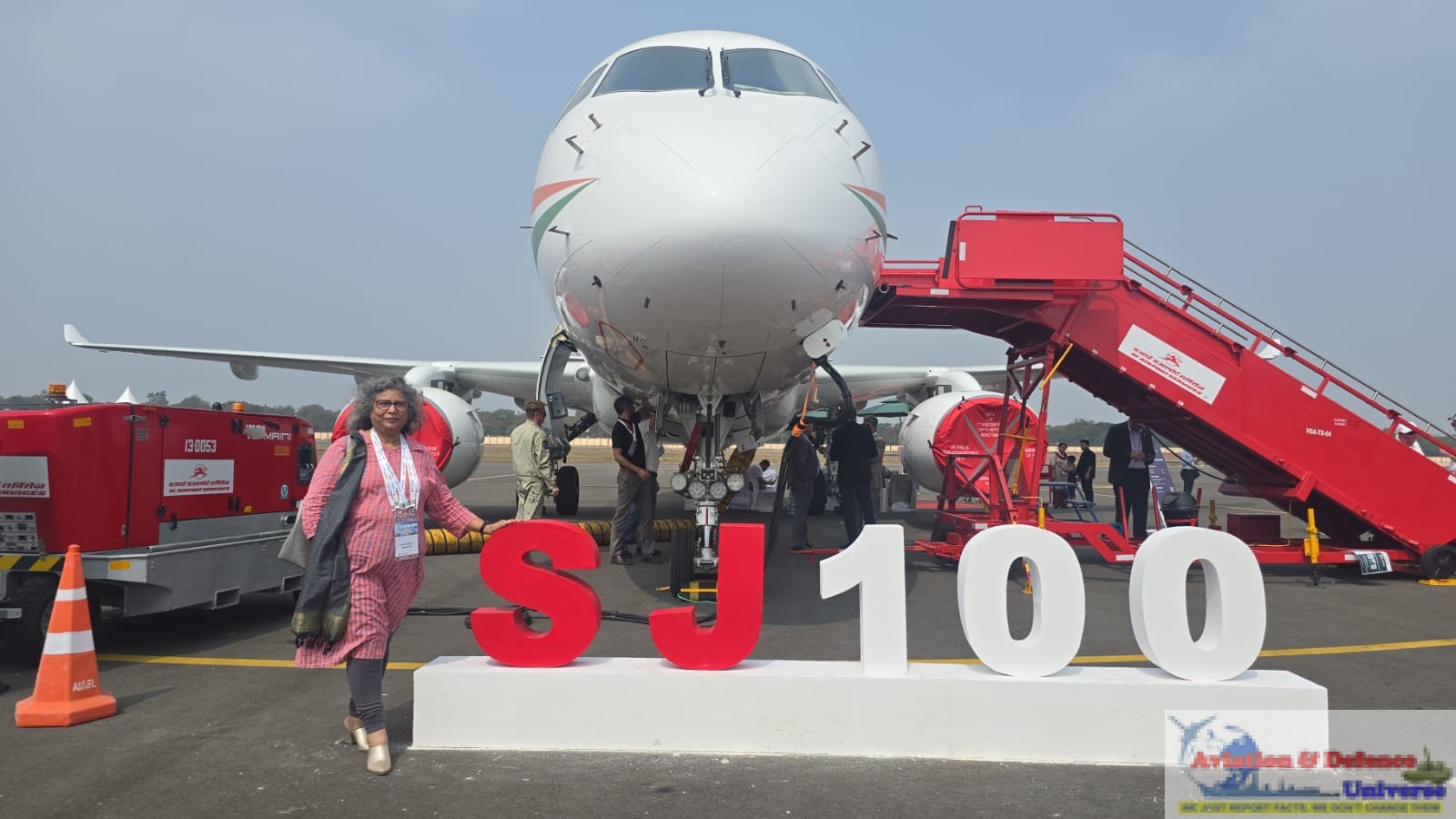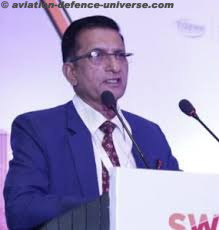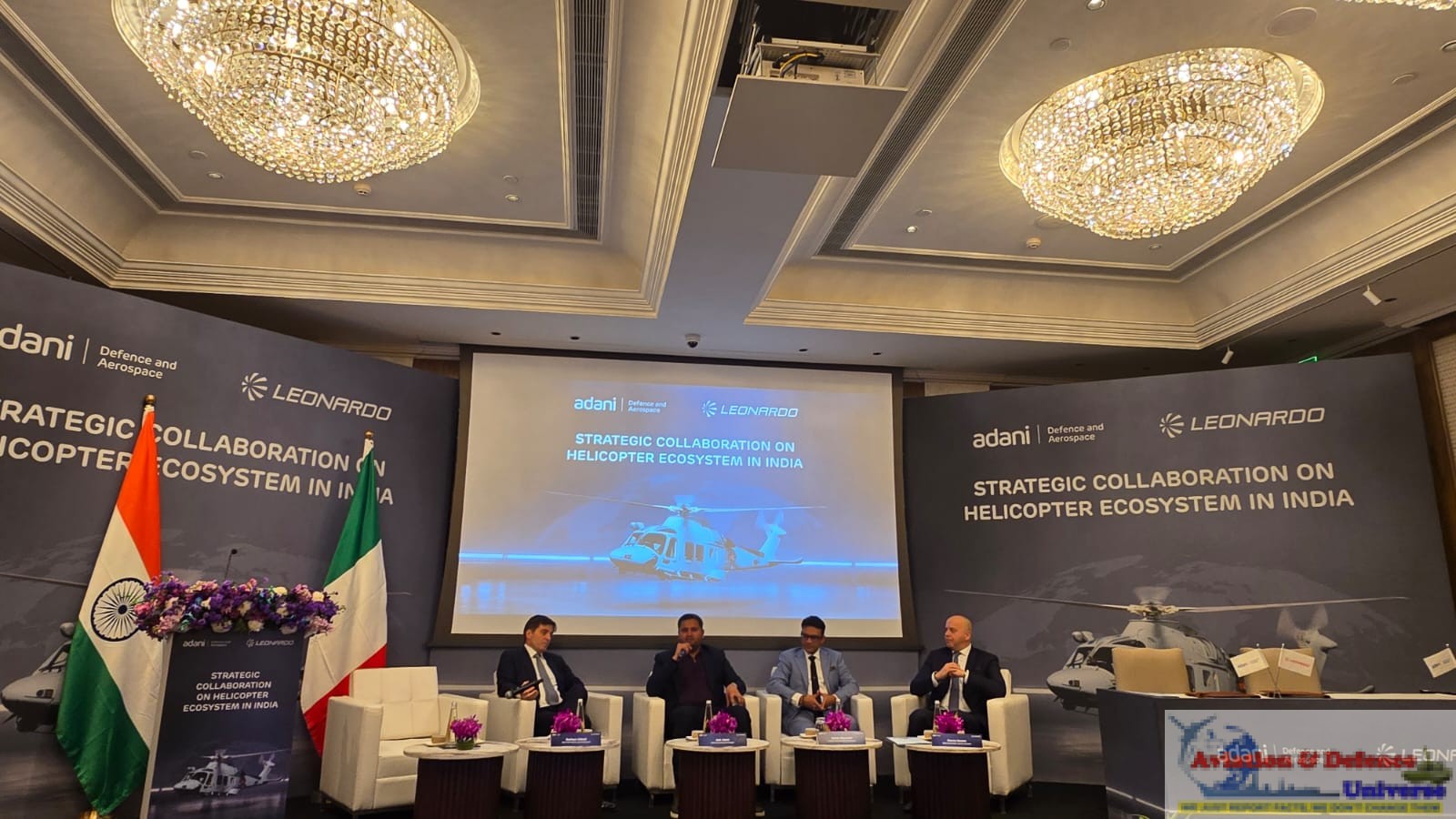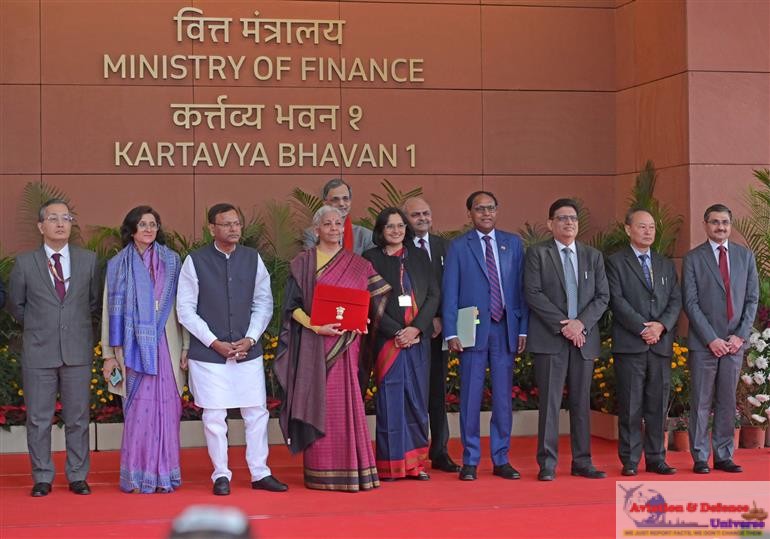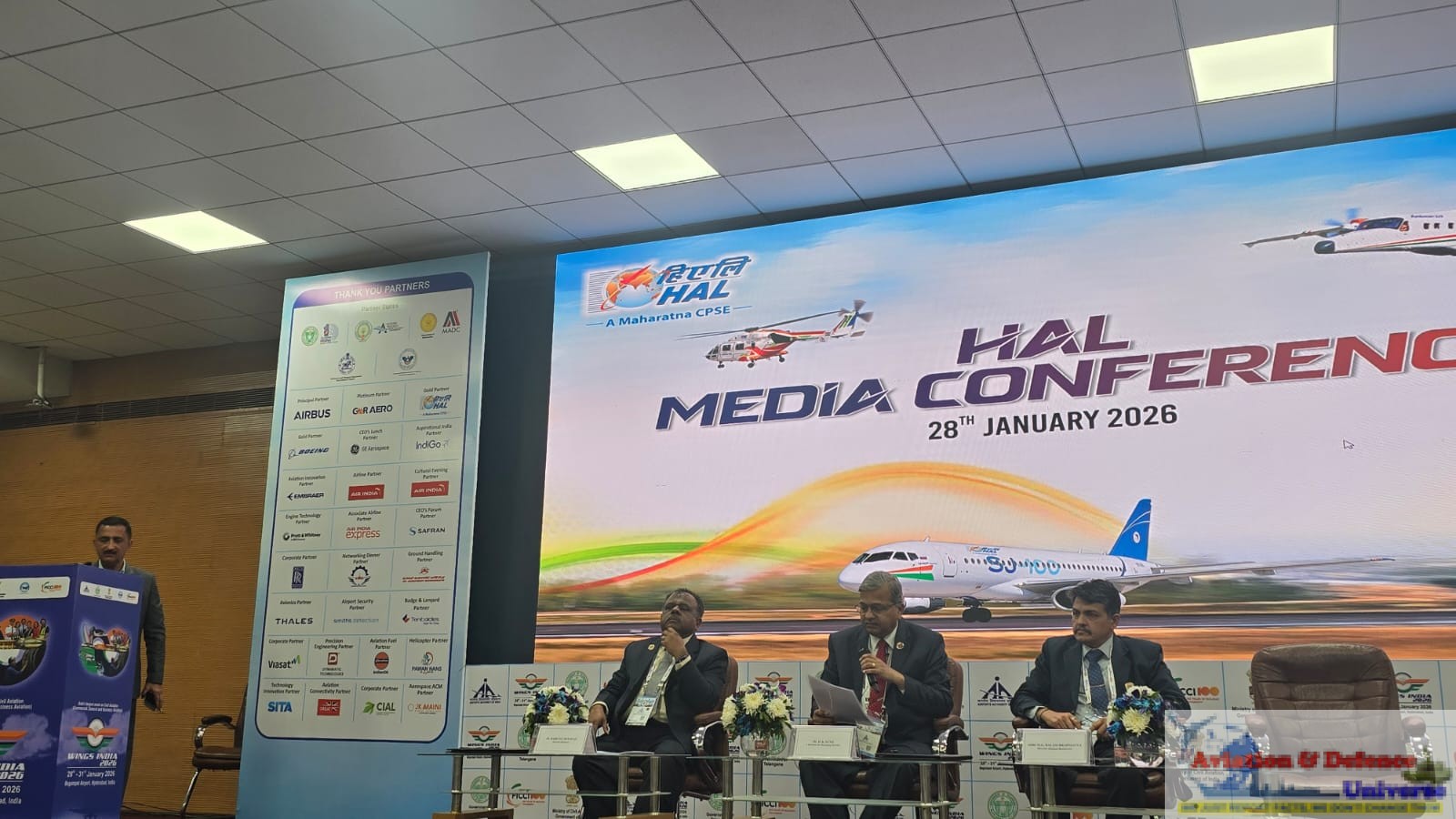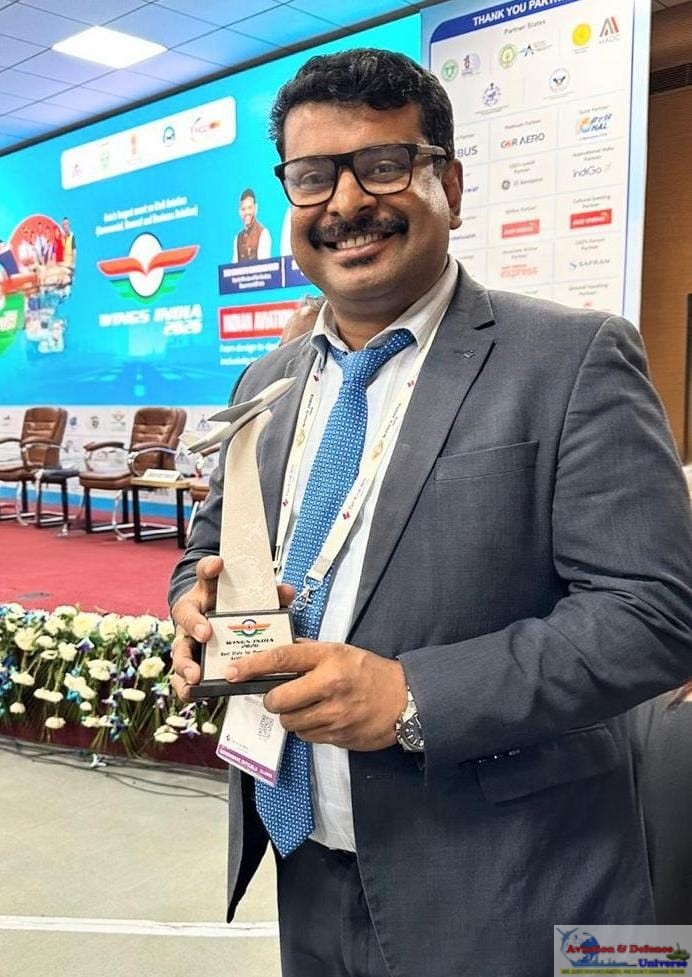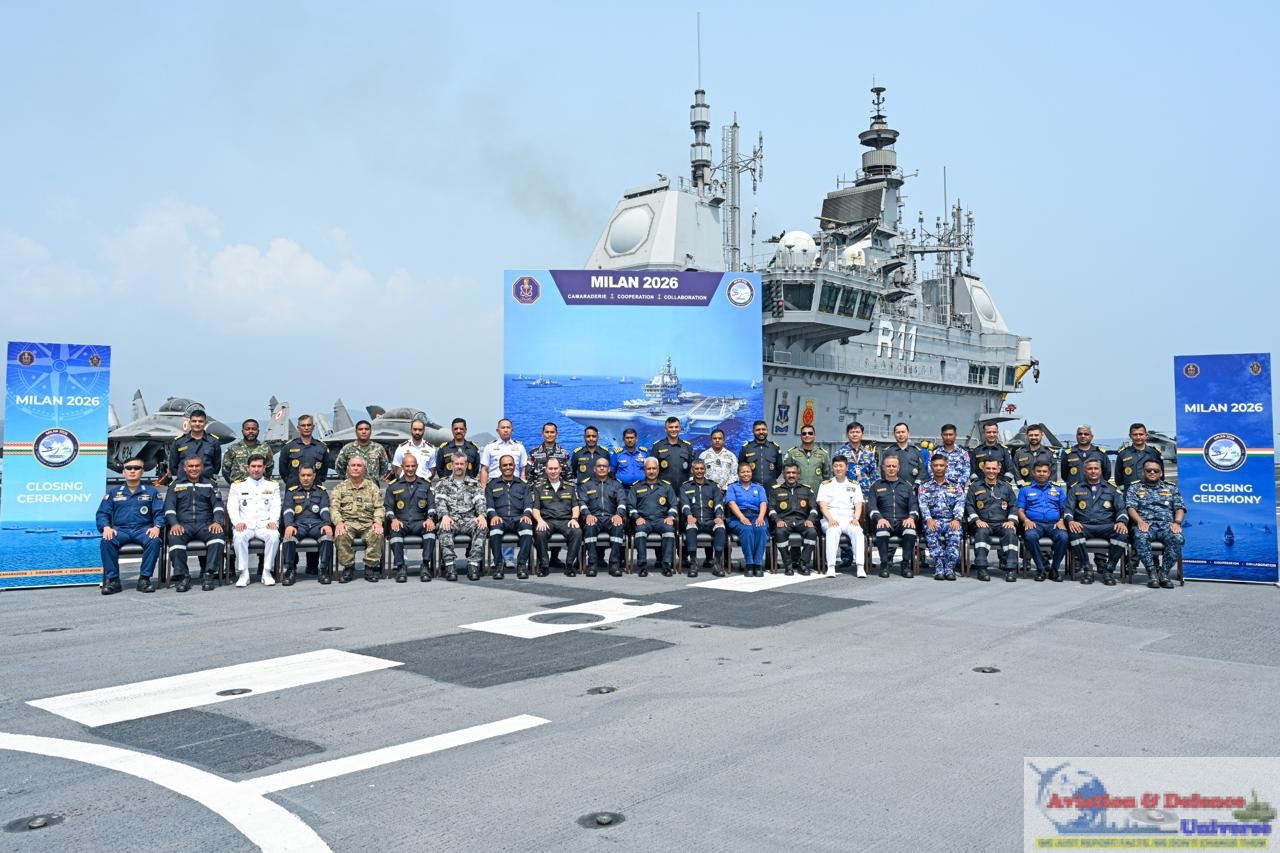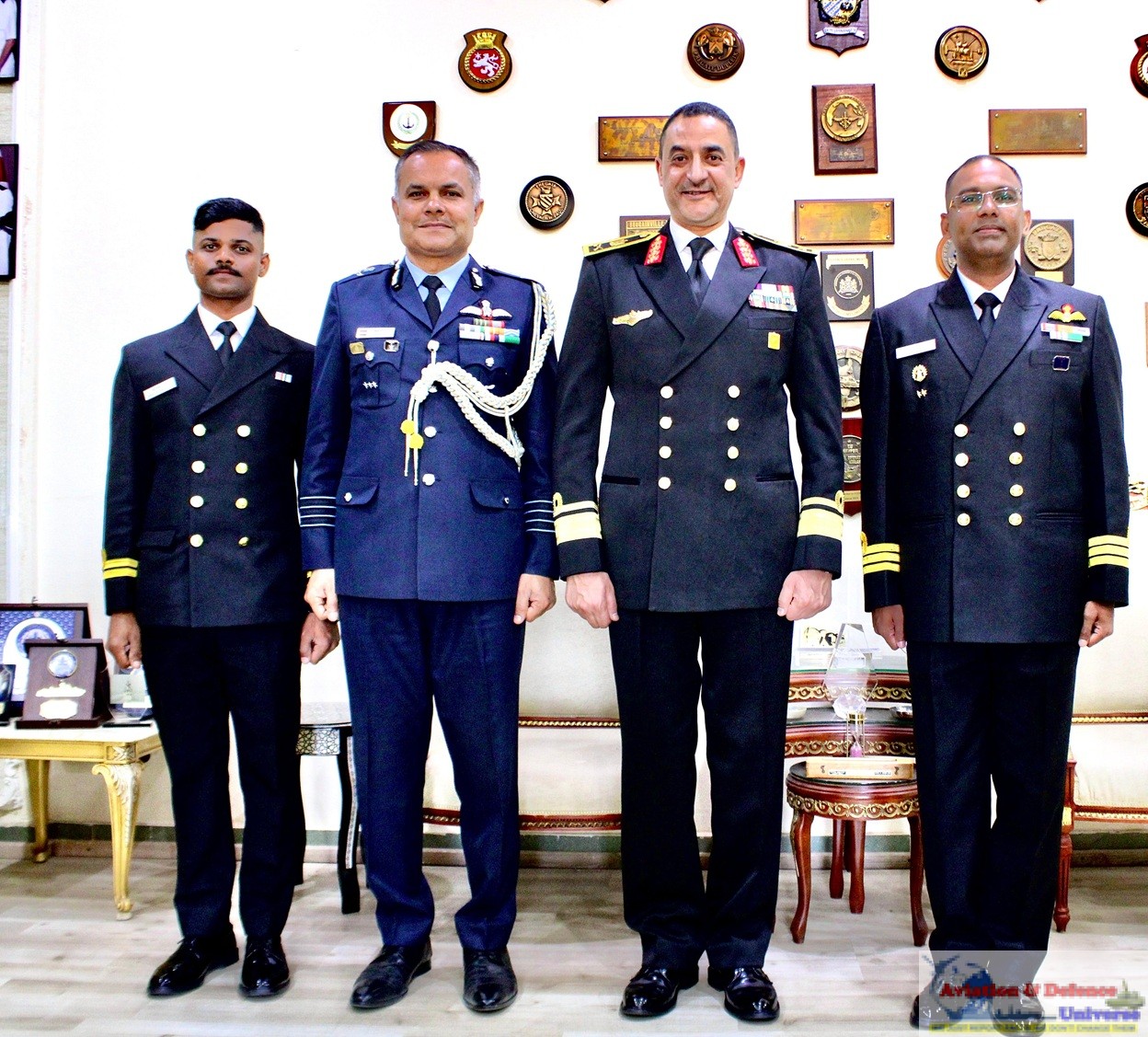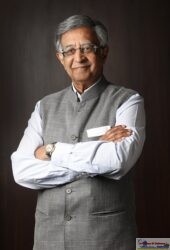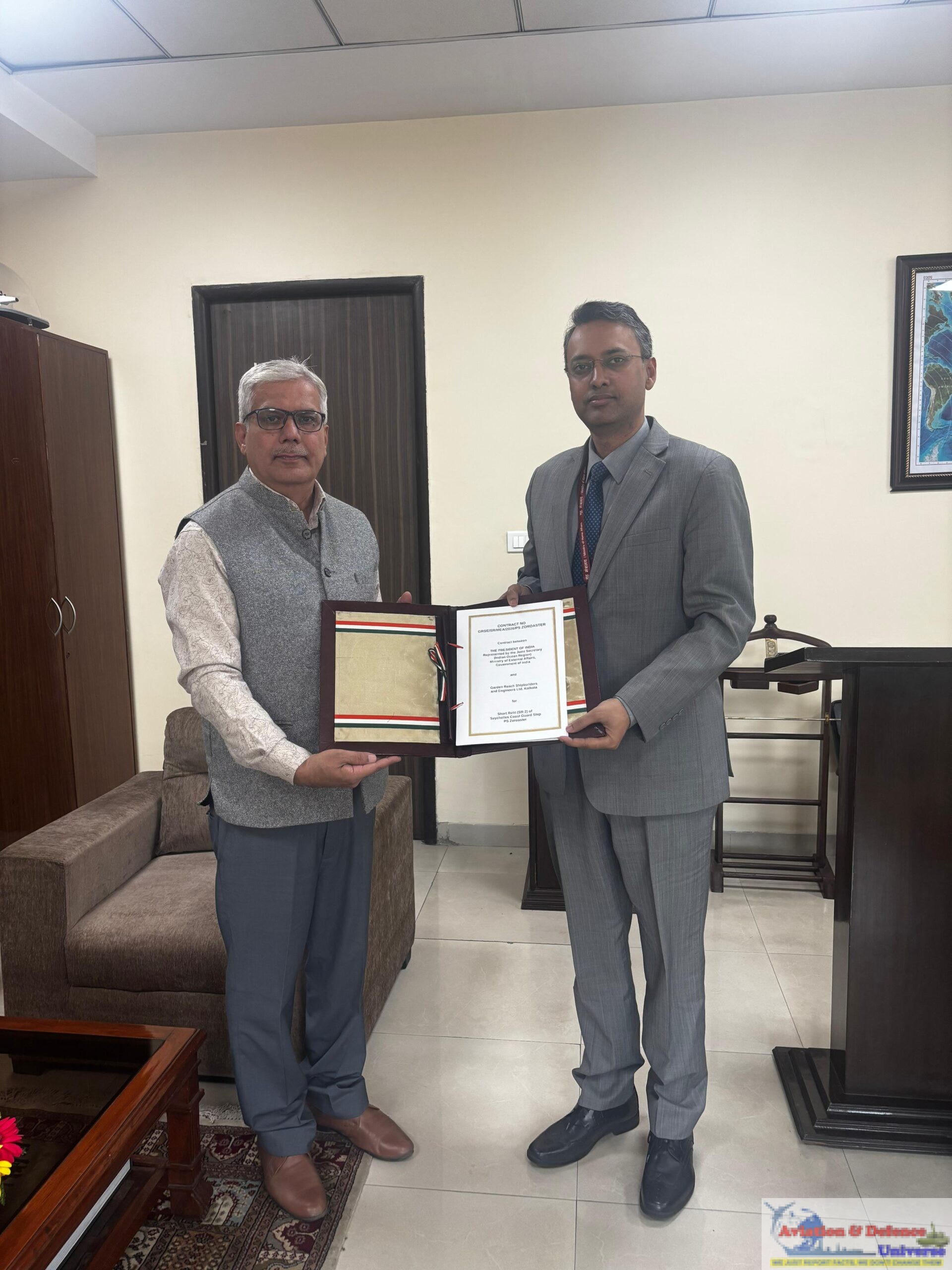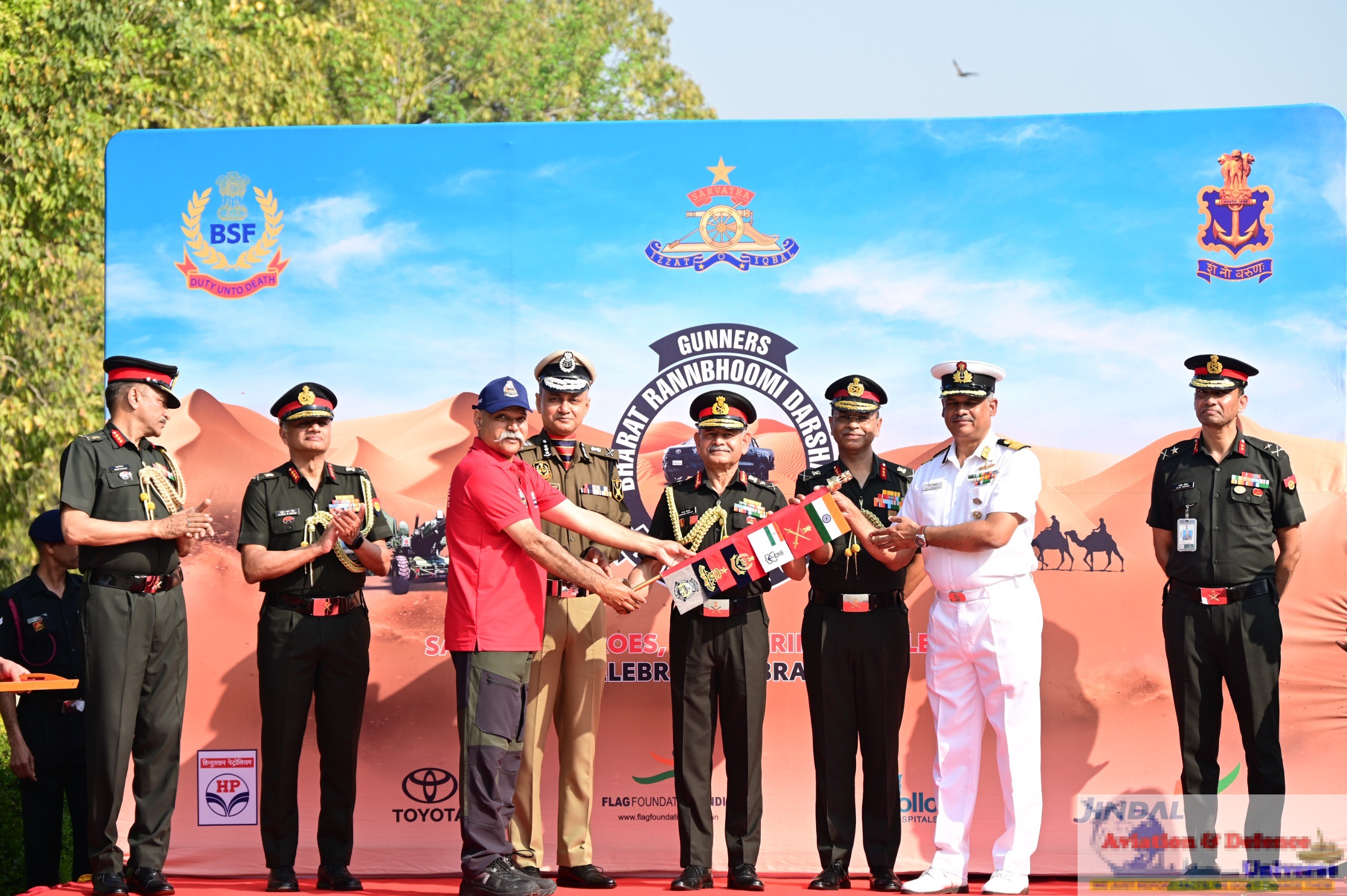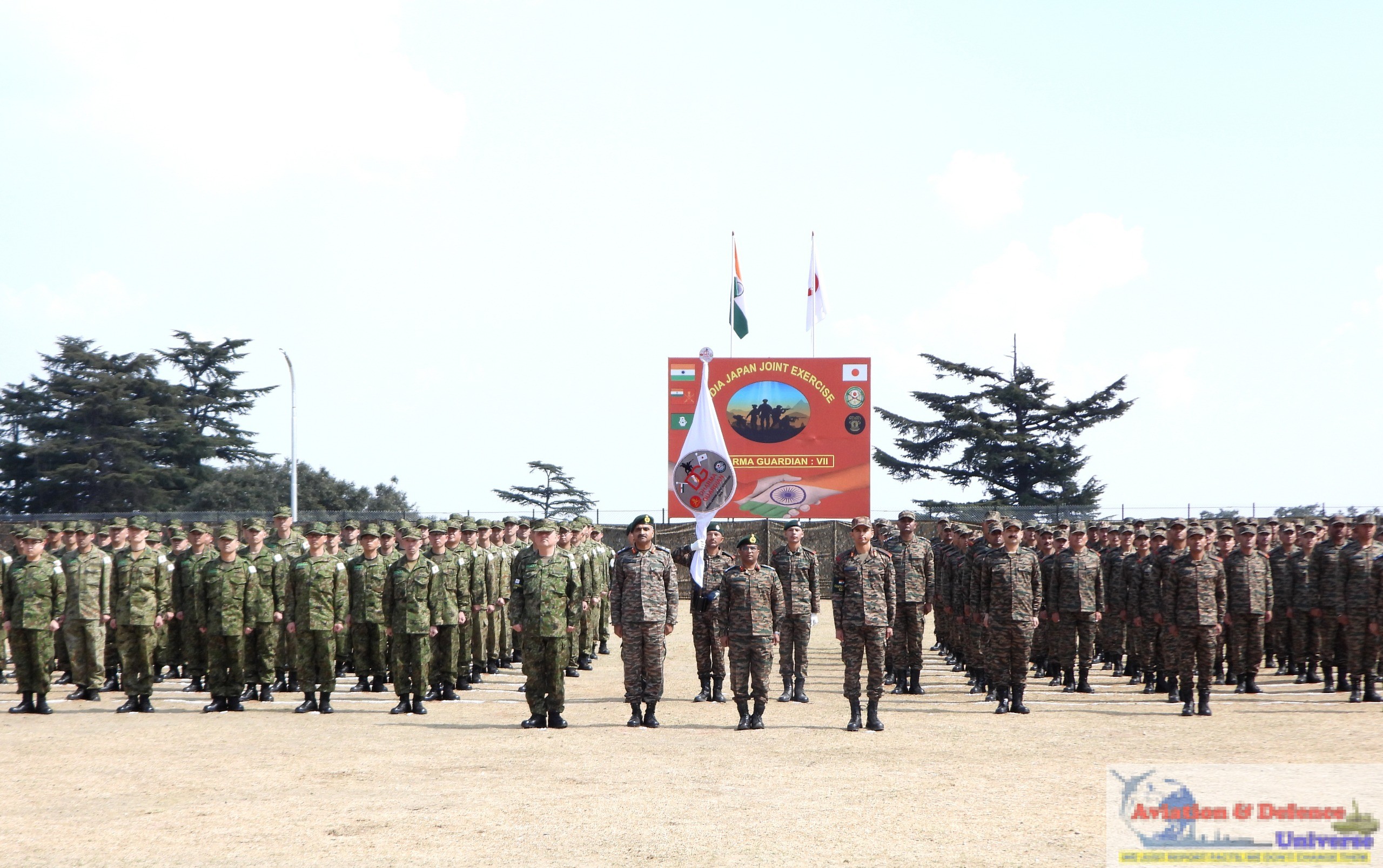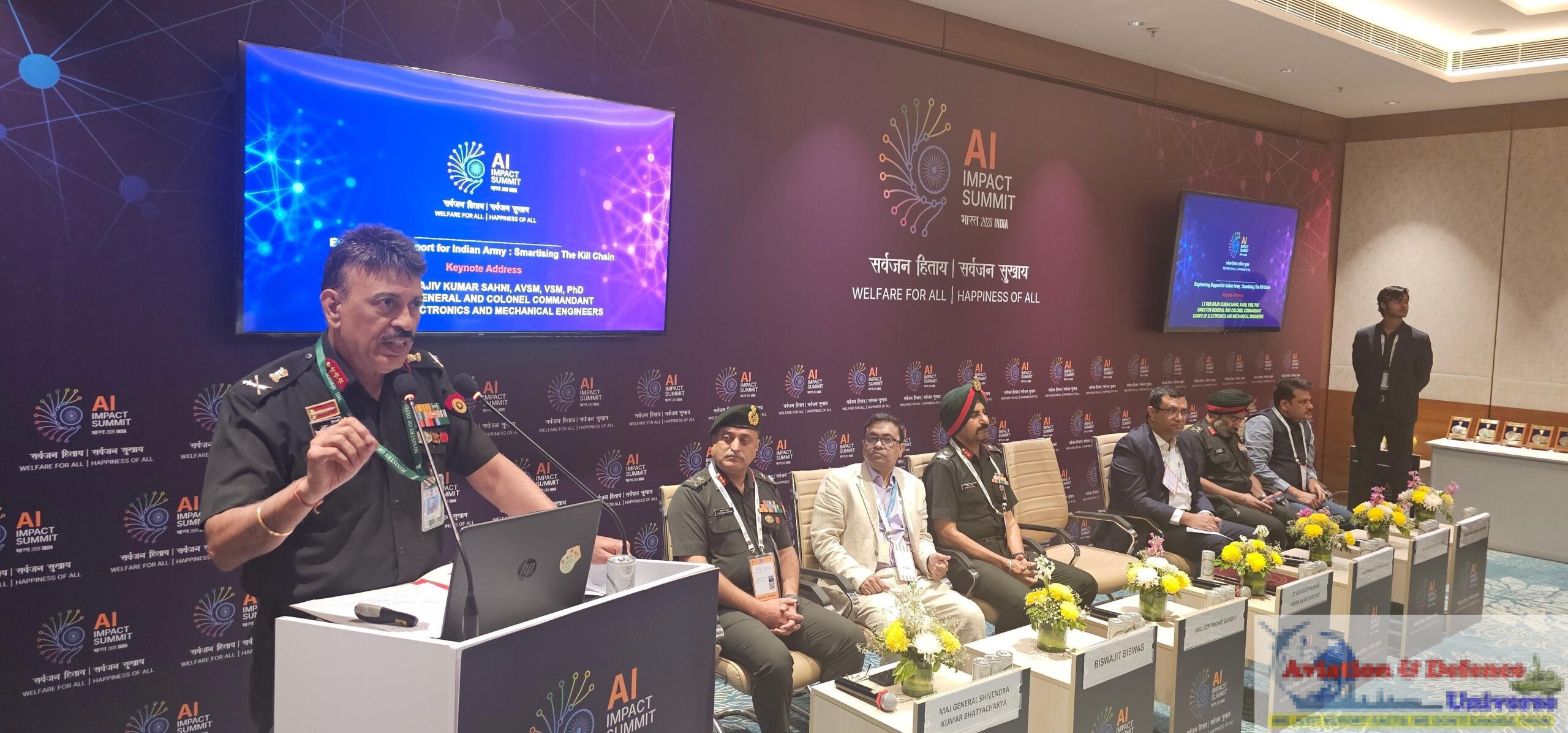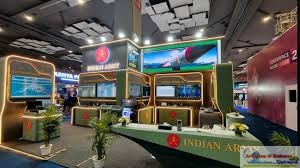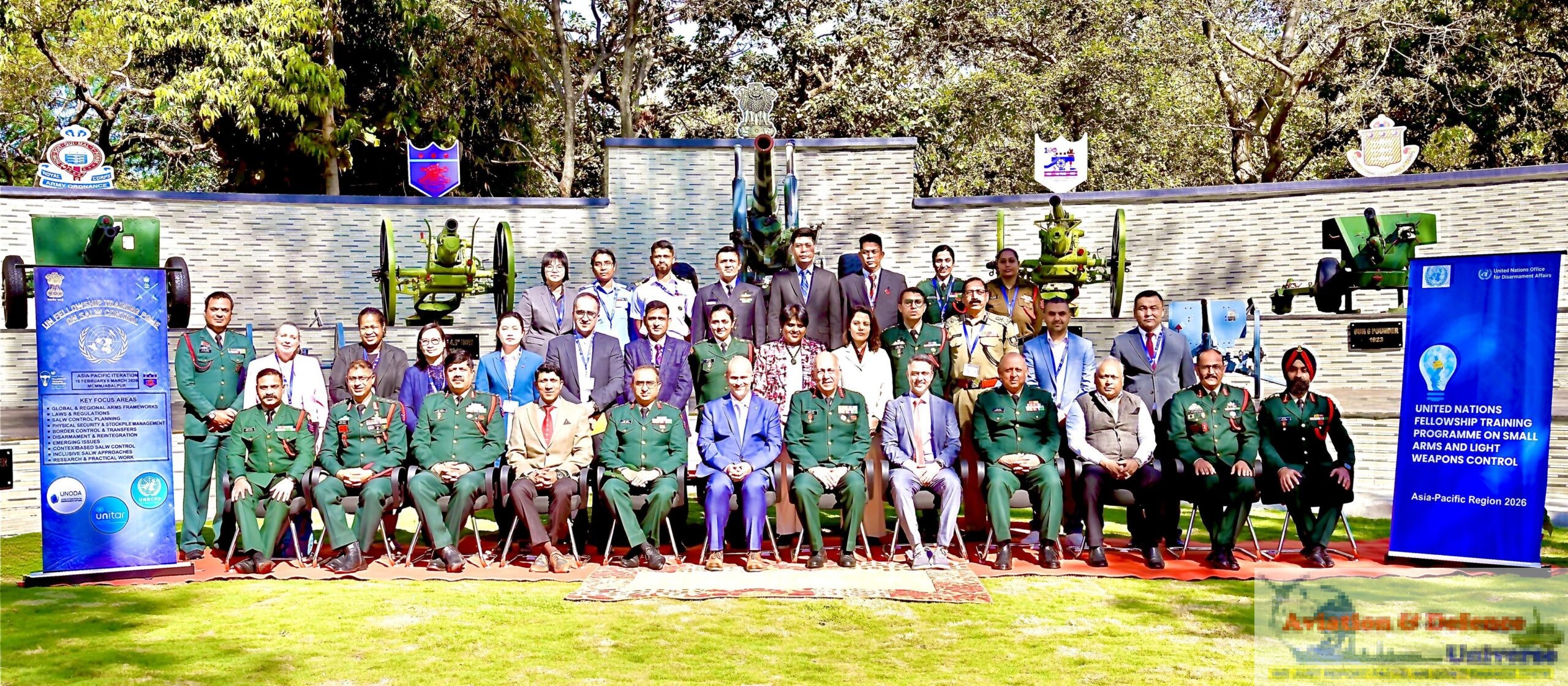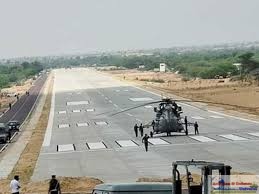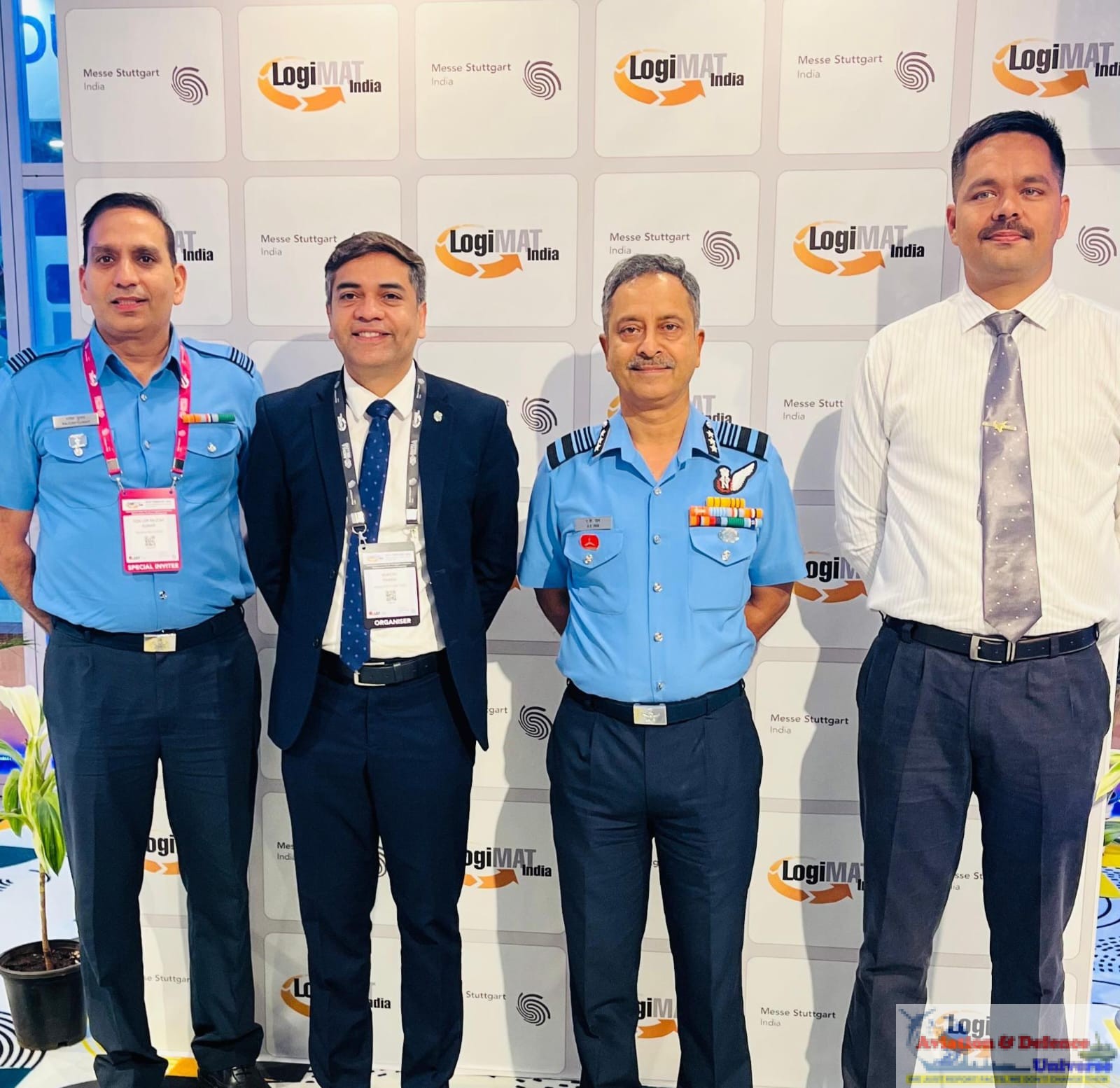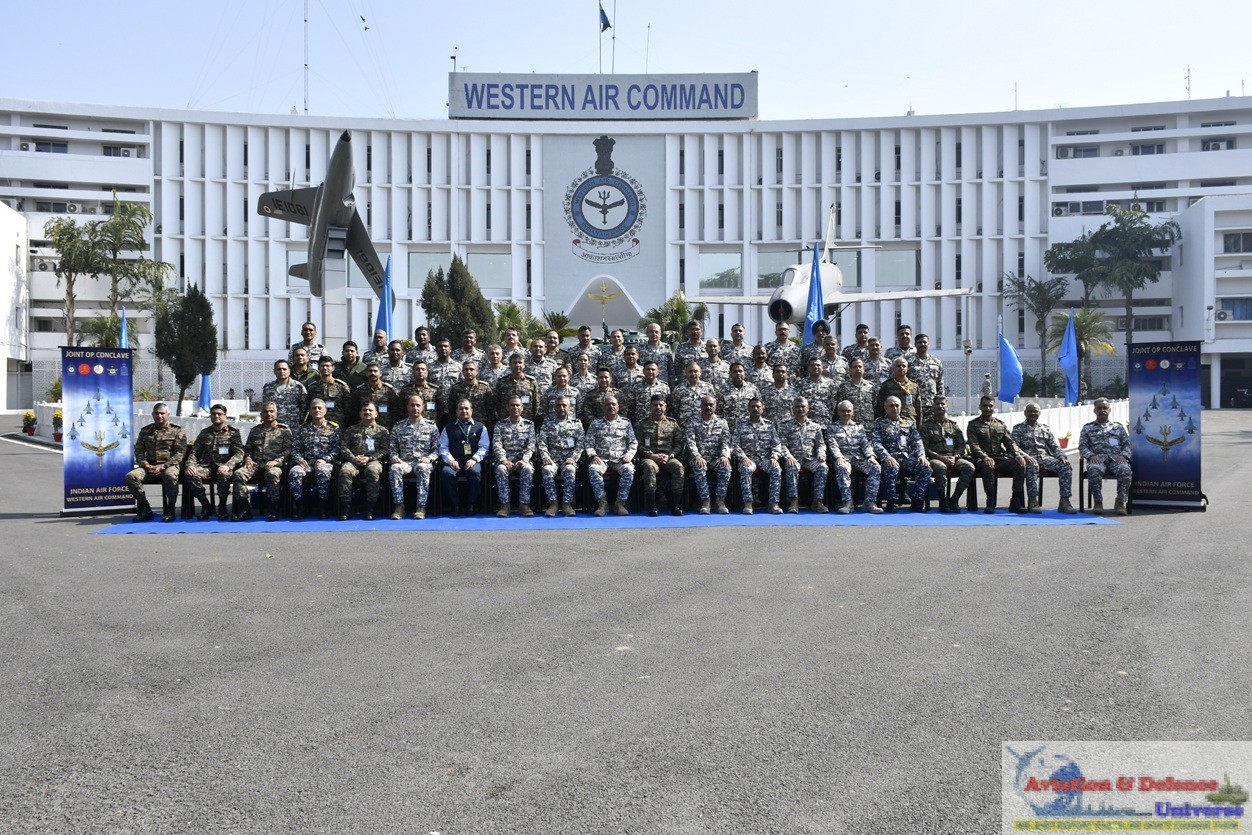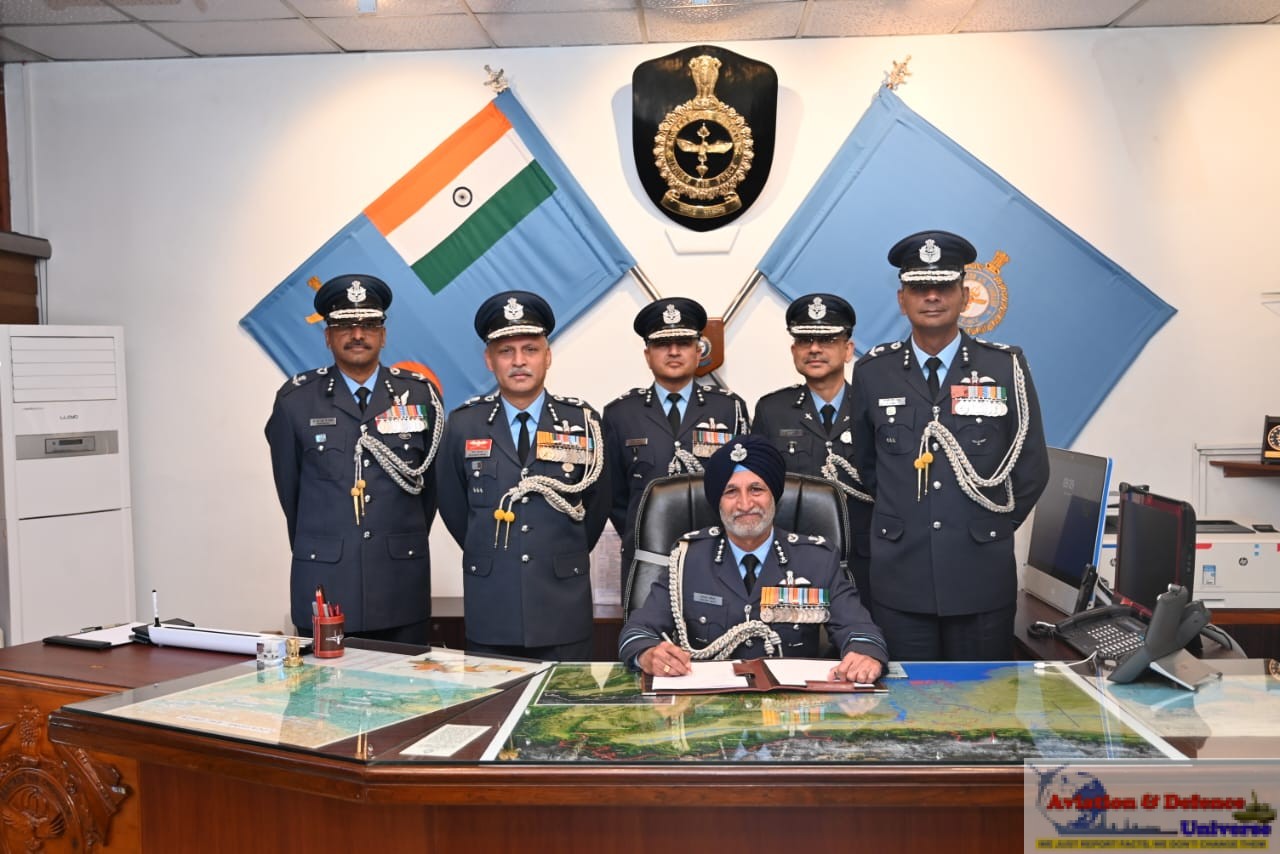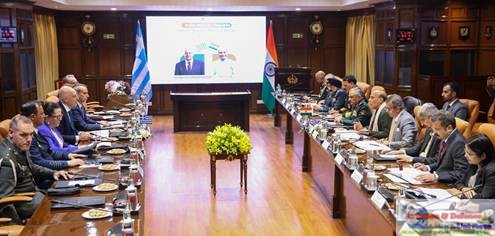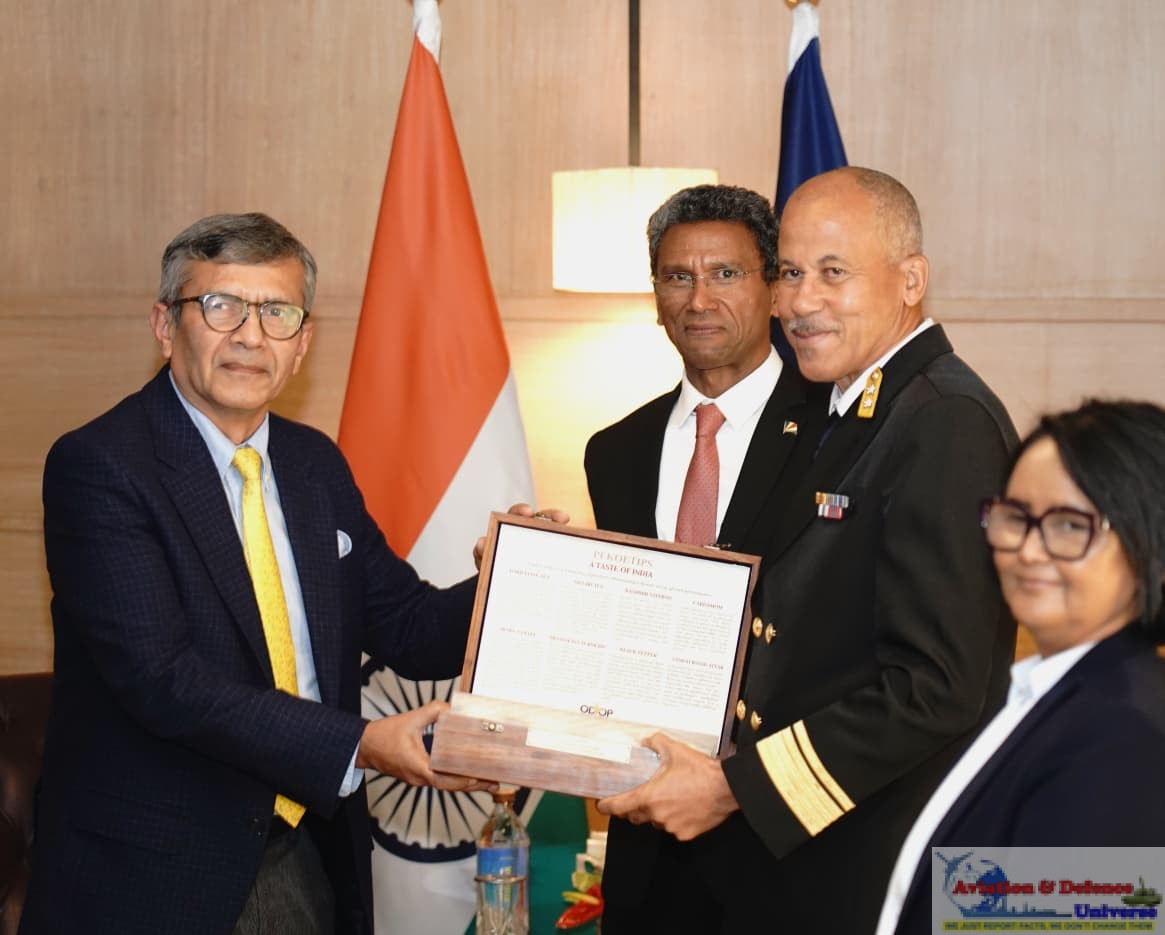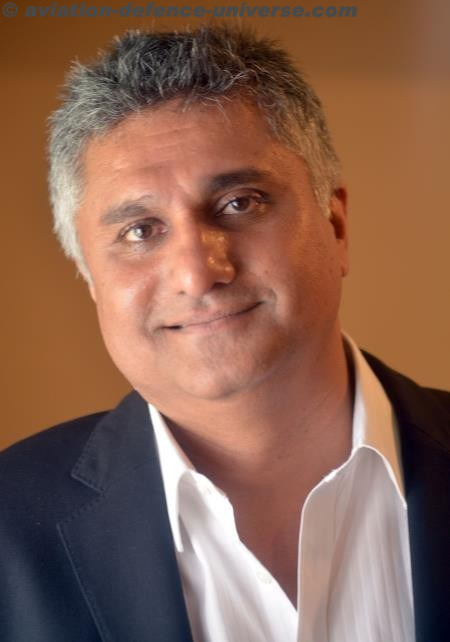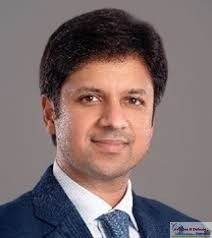- Focusses on Strategic Growth and Future in the Indian Defense Market
- Commitment to Local Manufacturing and Technological Innovation in India
- Development of MRO Operations for routine services & integration of advanced technologies
By Sangeeta Saxena
New Delhi. 28 September 2024. The global defence landscape is rapidly evolving, marked by increasing geopolitical tensions, advancements in technology, and shifting alliances. In this dynamic environment, India is emerging as a critical player, not only as a major consumer of defence technology but also as a burgeoning hub for manufacturing and innovation. Amid these developments, Danny Lauber, CEO of Aerospace Services a fully owned subsidiary of Israel Aerospace Industries spoke with Sangeeta Saxena, Editor, Aviation & Defence Universe sharing detailed insights into their strategic initiatives in India. The discussion spanned across various critical areas, including local manufacturing, MRO (Maintenance, Repair, and Overhaul) operations, and the integration of advanced technologies such as AI and machine learning to enhance the defence capabilities of the Indian armed forces.
As part of its strategic expansion in India, the company with its workforce of over sixty people has established six facilities across key locations. These include operations in Delhi, Mumbai, Hyderabad, Bengaluru, and Kochi. Each facility is tailored to meet specific needs and projects, thereby ensuring a holistic approach to serving the defence needs of the country.
Delhi and Mumbai Operations: In Delhi, the company has its headquarters here in the Aerocity. The Mumbai branch focuses on integration in the Indian Navy ships, including work at the naval dockyard, which is a critical hub for maintaining and upgrading naval capabilities. The Mumbai facility is particularly notable for its integration work related to the Indian Navy’s needs, including the MSN program, which ensures the company’s deep involvement in enhancing India’s maritime defence infrastructure.
Hyderabad Operations: The Hyderabad facility is dedicated to the manufacturing and integration of interceptors, a vital component of India’s defence strategy. This facility collaborates closely with Bharat Dynamics Limited (BDL), one of India’s premier defence manufacturers, to ensure the seamless production and deployment of these interceptors. The partnership with BDL represents the company’s commitment to leveraging local expertise and resources, aligning with India’s Make in India initiative.
Bengaluru Operations: The company’s Bengaluru facility is focused on joint programs, particularly in collaboration with Bharat Electronics Limited (BEL). This facility underscores the company’s emphasis on integrating cutting-edge technology into India’s defence infrastructure. By partnering with BEL, the company taps into India’s vast pool of engineering talent, ensuring that its products and services are not only state-of-the-art but also tailored to meet the specific needs of the Indian armed forces.
Assam Operations: In Assam, the company has a small but strategically important facility. This location is primarily focused on providing rapid support to the Indian Air Force and Army units stationed in the region. Given Assam’s proximity to sensitive borders, this facility is crucial for ensuring quick intervention capabilities in case of any emerging threats. The facility also underscores the company’s commitment to supporting India’s defence needs in even the most remote and challenging environments.
Focus on Local Manufacturing
Lauber underscored the company’s unwavering commitment to making India a manufacturing powerhouse, not only for the Indian armed forces but also for international exports. This vision is in line with the Indian government’s Make in India initiative, which aims to transform India into a global manufacturing hub.
Localization Strategy: The company is actively moving towards 100% localization, with a clear goal to have over 90% of its work done in India by 2027. This ambitious target is driven by the need to reduce service costs and turnaround times, thereby providing faster and more efficient services to its clients. The company’s localization strategy is not just about manufacturing but also about creating an ecosystem that supports the entire lifecycle of defence products, from research and development to maintenance and upgrades.
Integration of Advanced Technology: The company’s commitment to localization is also evident in its approach to integrating advanced technologies such as AI and machine learning into its operations. These technologies are being leveraged to create robust environments for the escalation of tickets from the field to R&D teams. This approach ensures that issues are resolved quickly, improving collaboration between various stakeholders, and optimizing resource use among the armed forces. The integration of AI and machine learning is particularly crucial in a country like India, where the scale and complexity of defence operations require cutting-edge solutions.
Challenges in Localization: While the company is making significant strides in its localization efforts, the executive also highlighted some challenges. One of the considerations is the relatively high cost structure, particularly in the defence sector. Local private sector companies may sometimes offer different pricing to domestic clients than to international ones, influenced by the increasing demand generated by the Make in India initiative. This initiative has successfully spurred growth in defence manufacturing projects, contributing to India’s expanding capabilities in the global market. However, the company remains committed to overcoming these challenges and is actively working to build a more cost-effective and efficient supply chain in India.
Challenges in the Local Ecosystem
The conversation provided a nuanced understanding of the dynamics faced by defence companies operating in India. The Indian government’s Make in India initiative has created significant opportunities for local manufacturing, contributing to the growth of the sector. As with any large-scale initiative, it has also brought about certain complexities that require careful navigation.
Price Dynamics: One of the key considerations raised by the executive is the pricing structure within the local defence manufacturing sector. In some cases, local private sector companies may offer different pricing to domestic clients compared to international ones, , which can add complexity to the business environment in India. This pricing dynamic is influenced by the increased demand created by the Make in India initiative, which has successfully driven a surge in defence manufacturing projects. As a result, local suppliers are experiencing a high volume of orders, which can sometimes lead to extended lead times and adjustments in pricing.
Supply Chain Considerations: The executive also highlighted areas for growth within the local supply chain, particularly in terms of capacity and capability. While India has a vast pool of engineering talent, the defence manufacturing sector is still in the process of building the infrastructure needed to meet the growing demand. This has,at times, led to delays in production and delivery, as well as challenges in maintaining the quality and consistency of products. The company is actively working to address these challenges by investing in local infrastructure and building partnerships with Indian suppliers.
Competitiveness and Innovation: Despite these challenges, the executive remains optimistic about the future of the defence manufacturing sector in India. The company is committed to building a more competitive and innovative ecosystem, one that can support the growing demands of the Indian armed forces and position India as a global leader in defence technology. This will require ongoing investment in research and development, as well as continued collaboration with Indian suppliers and partners.
Advanced Technology Integration : One of the most exciting aspects of the company’s operations in India is its focus on integrating advanced technologies into its products and services. This is not just about keeping up with the latest trends in defence technology but about creating innovative solutions that can address the unique challenges faced by the Indian armed forces.
AI and Machine Learning: The company is leveraging AI and machine learning to create robust environments for the escalation of tickets from the field to R&D teams. This approach allows for quicker resolution of issues, improved collaboration between stakeholders, and optimized resource use. By integrating AI and machine learning into its operations, the company is contributing to the ongoing transformation of how the Indian armed forces manage and maintain their assets.
Digital Twins and Predictive Maintenance: Another area where the company is making significant strides is in the use of digital twins and predictive maintenance technologies. Digital twins are virtual replicas of physical systems that can be used to simulate and analyse real-world scenarios. By using digital twins, the company can identify potential issues before they become critical, allowing for more proactive maintenance, and reducing downtime. Predictive maintenance technologies, powered by AI and machine learning, can analyse data from sensors and other sources to predict when equipment is likely to fail, allowing for repairs to be made before the failure occurs.
Collaboration with Indian Startups: The company is also collaborating with Indian startups to develop innovative solutions for the defence sector. By partnering with startups, the company can tap into India’s vibrant tech ecosystem and access.
Cutting-edge technologies and ideas
These collaborations are not just about developing new products but about creating an innovation ecosystem that can drive the future growth of the defence sector in India.
Strategic Partnerships and Future Growth
The company’s strategic partnerships with Indian organizations are a key part of its growth strategy in India. These partnerships are not just about expanding the company’s footprint in the country but about building long-term relationships that can drive innovation and growth in the defence sector.
Collaboration with Bharat Dynamics Limited (BDL): The company’s partnership with BDL is a prime example of how it is working with Indian organizations to enhance the country’s defence capabilities. BDL is one of India’s leading defence manufacturers, and the collaboration between the two companies is focused on the production of interceptors. This partnership is not just about manufacturing but about transferring technology and building local expertise, which is critical for India’s long-term defence strategy.
Collaboration with Bharat Electronics Limited (BEL): The company is also working closely with BEL, another major player in India’s defence sector. The collaboration with BEL is focused on joint programs that integrate cutting-edge technology into India’s defence infrastructure. By partnering with BEL, the company can leverage India’s vast pool of engineering talent and ensure that its products and services are tailored to meet the specific needs of the Indian armed forces.
Expansion into Civilian Aerospace: Looking ahead, the company is also planning to expand into civilian aerospace, a sector that offers significant growth opportunities. The executive noted that there are numerous opportunities in the civilian aerospace sector, particularly in the areas of MRO and advanced technology integration. By expanding into civilian aerospace, the company can diversify its operations and tap into new markets, further strengthening its presence in India.
Building a Billion-Dollar Enterprise: The company has ambitious plans for its future growth in India, with a goal of becoming a billion-dollar enterprise. This will require not only securing more deals and expanding its services but also building a robust ecosystem that can support the company’s long-term growth. The executive emphasized the importance of partnering with Indian startups and academia to foster innovation and enhance the company’s technological capabilities.
Danny Lauber emphasised that the company is well-positioned for significant growth in India, driven by its focus on local manufacturing, advanced technology integration, and strategic partnerships. While there are challenges in the local ecosystem, the executive remains optimistic about achieving the company’s ambitious goals. By continuing to invest in India’s defence infrastructure and building strong relationships with local partners, the company is not only contributing to India’s defence capabilities but also positioning itself as a global leader in the defence industry.
In the coming years, the company’s operations in India are expected to grow even further, with a focus on increasing localization, expanding into new markets, and leveraging advanced technologies to create innovative solutions for the Indian armed forces. As the defence landscape continues to evolve, the company’s strategic initiatives in India will play a crucial role in shaping the future of the country’s defence capabilities.
As told to Sangeeta Saxena

